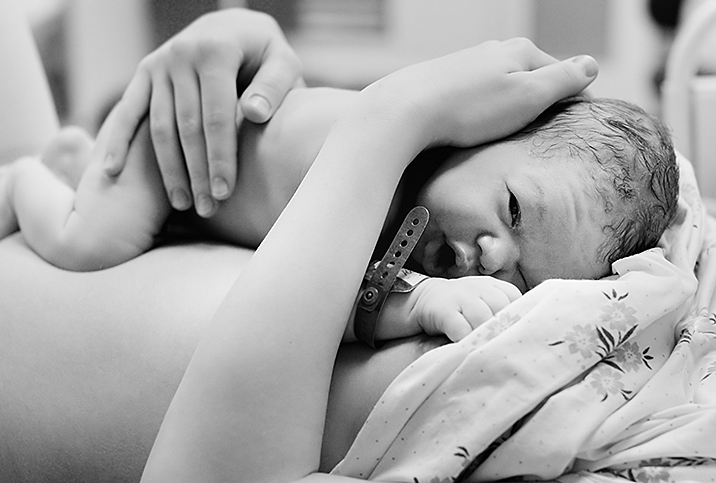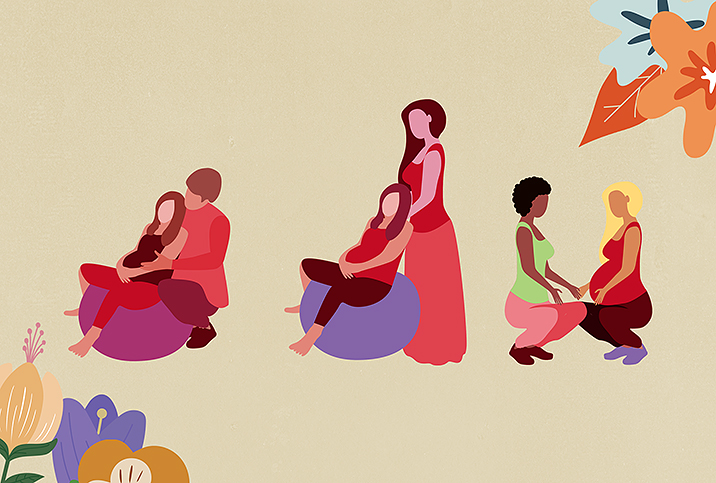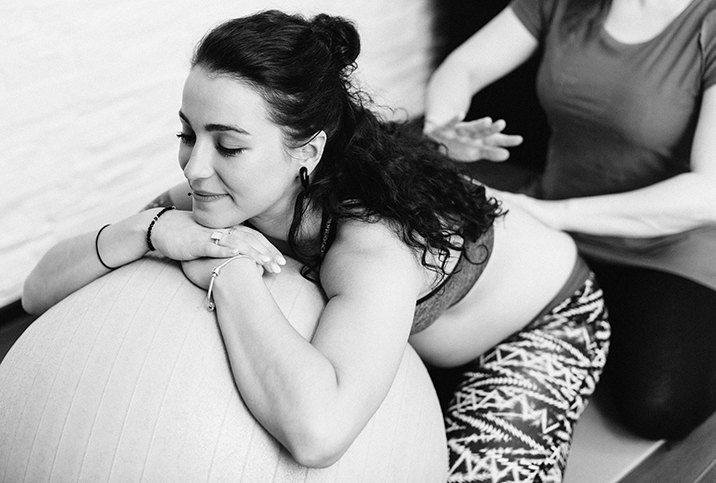Even in a Pandemic, Laboring Parents Need Doulas

A doula’s job is inherently hands-on. Doulas are certified (although not medically trained) experts who support new mothers before, during and shortly after childbirth. They provide information on pain control, emotional support during unexpected turns or a literal hand to squeeze during labor.
But since hospitals imposed restrictions on visitors and support personnel to control the spread of COVID-19 last March, doulas have had a difficult time doing their jobs. And without an advocate in the labor and delivery rooms, parents struggle to get the support they need during labor. But research has shown that doulas deliver.
Doula-assisted mothers were more likely to experience shorter labors and less likely to have a cesarean section, a 2017 review by the Cochrane Library found. Doulas also help prevent birth complications for mothers and babies, according to a 2013 study published in the Journal of Perinatal Education.
Doulas are still a necessary part of the birth process
New fears and anxieties during labor. COVID-19’s spread only heightened those anxieties, as expectant parents had to change plans and face the possibility of giving birth without a doula (or any other support person) present, said Talitha Phillips, a certified labor and postpartum doula and CEO of Claris Health, a Los Angeles-based community non-profit. A doula’s role is therefore more important than ever right now, even if they’re only able to be present virtually.
"Doulas often act as a sounding board and a personal, relatable translator of information," Philips explained. That means they can help parents navigate changing rules and procedures around giving birth during a pandemic. "Their relationship with the family extends far beyond the laboring hours, and [doulas] are trained to communicate in a caring manner that understands the laboring person's concerns as well as her hopes and desires for the birth," Philips said.Amy Lewis, owner of Buddha Bellies, a doula service in Tampa, Florida, said she’s confident she can still help someone be more calm and comfortable, even if she’s not physically present. "[Clients] hire me for the support that I give," she said, "I can do that if I'm there in person or virtually." Of course, she said, she’s much better at providing support in person. Lewis insisted it’s more than just the "touchy feely" part of having a doula present. "High-quality research has shown that people and their babies have improved birth outcomes with the care of in-person professional labor support," she explained.
'[Clients] hire me for the support that I give, I can do that if I'm there in person or virtually.'
Navigating a new normal
A year out from the start of the pandemic, hospitals are starting to relax their rules. According to the American College of Obstetricians and Gynecologists, however, every institution can determine if a doula is considered a visitor or part of hospital personnel.
As rules remain fluid around who’s allowed in labor and delivery rooms, doulas and parents have needed to figure out how to give and receive support mostly through texts, phone calls and video chats. Instead of giving massages or holding laboring parents’ hands, doulas are relying on their ability to provide education—and lots of it.
That may mean sharing more ideas with birthing partners for comfort measures, such as positioning pillows differently for pain relief or sitting on a birthing ball. In the past, doulas could reposition pillows for their clients. Doulas are also helping parents craft customized care plans ahead of time so they know when to ask questions and voice birth preferences to their medical team, and how to speak up when they’re feeling ignored or dismissed by the team.
When relying on virtual methods, however, "it’s tough to stay connected when a woman is in labor," Phillips said. "It’s hard to keep up with what’s going on in the delivery room as hospital staff interact with mom and partner. This past year, it often ended up working better for the partner to simply call me or text questions and put me on speakerphone when appropriate."
Despite the hiccups, Lewis said the presence of a doula—through a screen or otherwise—improves a birthing person’s satisfaction with their birth experience. She often has her clients prop their phones up on the rolling table that sits over the bed, so both can see each other. "In that way we could communicate directly," Lewis explained, "We're up by their head and FaceTiming through pushing."
Philips is making it work by purposefully increasing the emotional support and reassurance she gives to her clients—even from afar. “I try to assure them that even if the process looks different,” she said. “I'll do my best to make sure they never feel alone.”


















